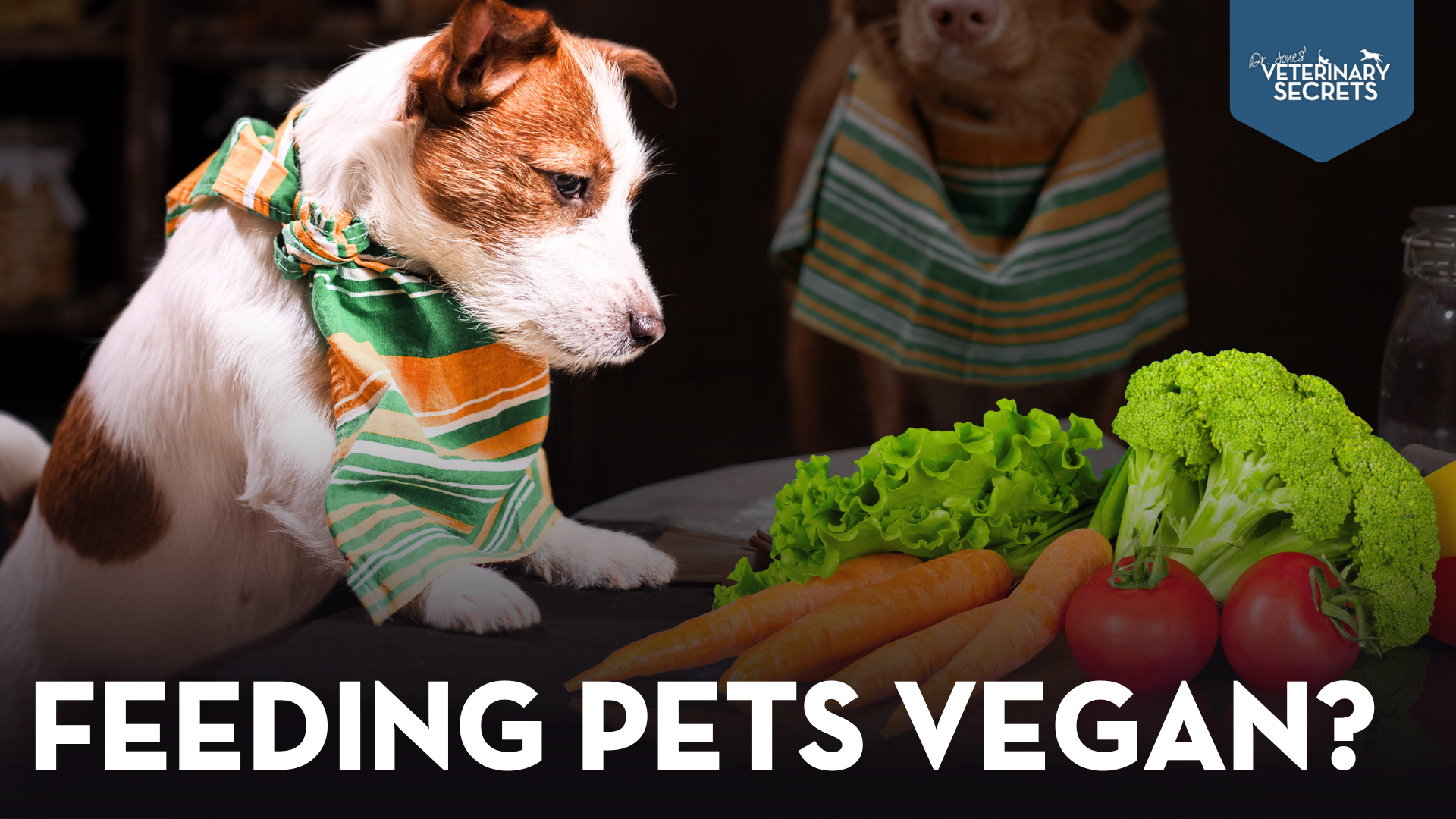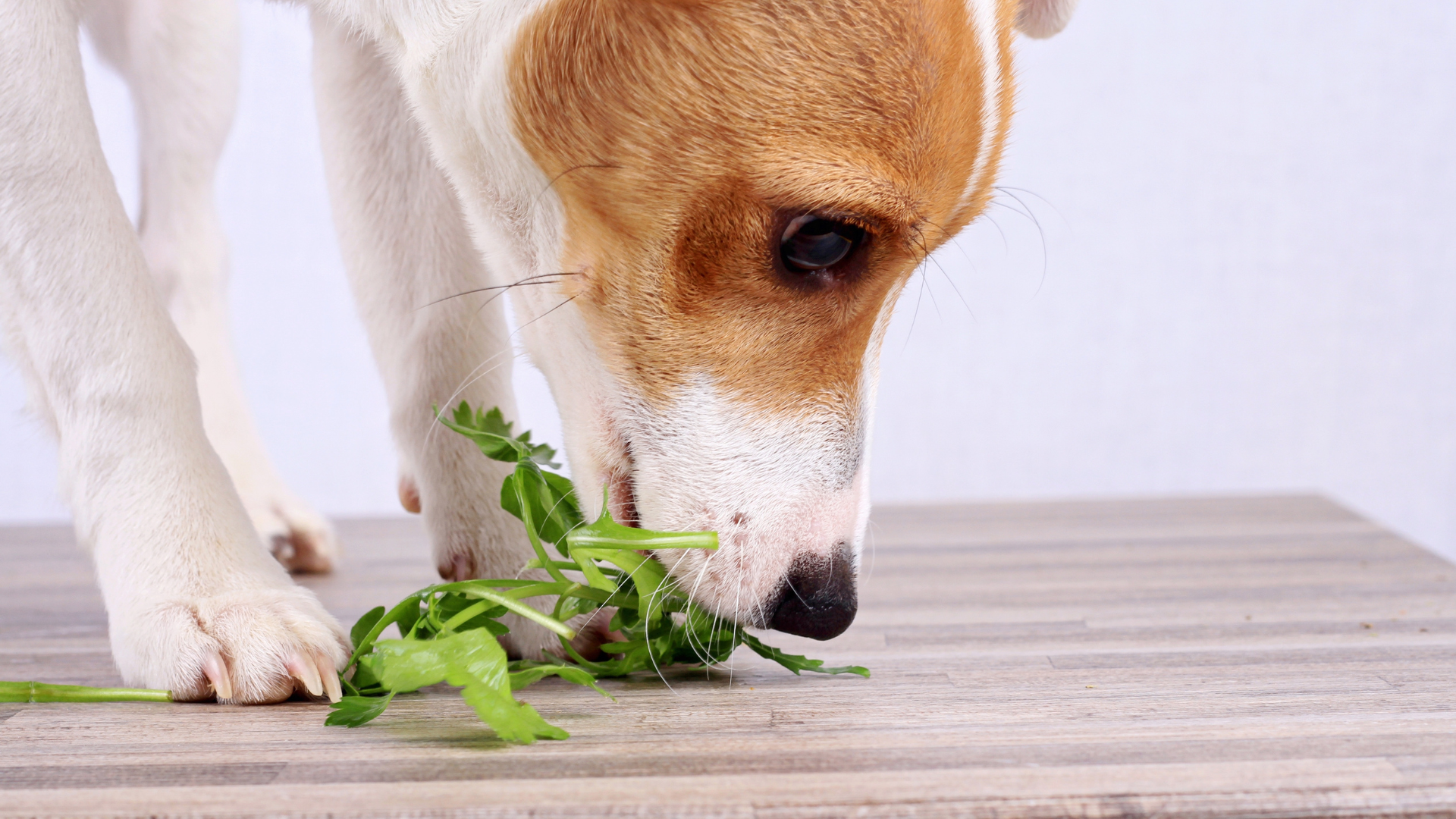Vegan Diet for Dogs and Cats: Vet-Approved or Silent Threat?
![]()

The Truth About Veggies for Dogs and Cats: What You Need to Know
Veggies are great for us, but does that mean they’re good for our dogs and cats too? I have to admit, the idea of a plant-based diet for our pets has been on my mind lately. While I personally can’t imagine cutting out all animal protein from my diet, some people seem to think that it’s the best option for their pets. It’s a bit of a confusing topic, but here’s what I know for sure…
The Importance of Supplements for Your Pet’s Health
While I’m not on board with cutting out animal protein for dogs and cats, I do believe in the power of supplements to support their health. Adding extra nutrients to your pet’s diet—whether it’s for joint health, skin health, gut health, or boosting their immune system—can make a world of difference in keeping them strong and healthy. It’s a simple way to ensure they’re getting all the nutrients they need, especially if you’re making a home-cooked diet for them.
Why Supplements Matter
You might think that feeding your pet veggies is enough, but it’s crucial to ensure they’re getting the right balance of nutrients. That’s where supplements come in. Our Complete Canine and Feline Formulas are perfect for providing additional support. They’re designed to fill in any gaps in their diet, ensuring your pets get what they need to stay at their best.
Dr. Jones’ Ultimate Feline Health Formula

How Dr. Jones’ Supplements Help
If you’re considering a home-cooked diet for your dog or cat, you can easily make sure it’s nutritionally balanced by adding in one of my Dr. Jones’ Ultimate Health Formulas. These supplements are crafted to support the overall health of your pet, covering everything from joint mobility to digestive health and immune system support.
Dr. Jones’ Ultimate Canine Advanced Plus Health Formula

Curious about how these formulas can help your pets? Check out Dr. Jones’ Ultimate Canine ADVANCED PLUS Health Formula and Dr. Jones’ Ultimate Feline Health Formula to see the benefits for yourself!
It’s simple, effective, and ensures your pets get all the goodness they need to stay healthy and thrive.

Vegan Diets for Dogs: A Surprising New Perspective
I’ve been thinking a lot about a recent study on vegan diets for dogs, and to be honest, it’s got me reconsidering some things. The findings might just challenge what we’ve long believed about pet nutrition. Could a vegan diet actually be better for dogs than a meat-based diet? I was curious enough to take a deeper look, and I think it’s a conversation worth having.
The Study That Made Me Pause
A recent survey study analyzed the health of over 2,500 dogs, comparing their diets: conventional meat-based, raw meat, or vegan diets. The research, led by Andrew Knight from the University of Winchester in the U.K., was published in the PLOS ONE journal in April 2022. The results of this study caught my attention, as they suggested that nutritionally sound vegan diets might be healthier—and even safer—than conventional or raw meat-based diets.
The survey collected data on various health metrics, including veterinary visits, use of medications, and common health issues. After analyzing the results, the study concluded that dogs on conventional meat diets appeared to be less healthy than those on either raw meat or vegan diets. Interestingly, dogs on raw meat diets were found to be somewhat healthier than those on vegan diets. However, there are several factors to consider here, which I’ll break down.
What Does This Study Really Mean?
When we dig deeper, we see that the raw meat-eating dogs in this study were generally younger than those on vegan diets, which may explain their better health. Additionally, owners of dogs on raw meat diets were less likely to take their pets to the vet. While this could indicate that these dogs are healthier, it could also suggest that guardians of raw-fed dogs are less likely to seek medical advice, which skews the findings.
Even with these factors, it’s important to note that raw meat diets have previously been linked to nutritional deficiencies and the risk of pathogens, like bacteria or parasites, which can affect your dog’s health. So, while dogs on raw meat diets may appear healthier, there’s still a risk involved, making it a less reliable choice in the long term.
So, Is Vegan Really Better?
The study’s authors believe that nutritionally complete vegan diets might actually be the healthiest and least hazardous option. That’s a big statement, and one I didn’t expect to hear. But after looking at the data, I’m starting to see their point. Vegan diets, when done properly, can offer a balanced, safe alternative to meat-based diets, especially as we face rising food costs and environmental concerns.
Of course, there’s a lot more research to be done. The study suggests that larger, more comprehensive studies could offer better insights. However, based on what we know so far, the nutritionally complete vegan diet is starting to look like a viable option for some dogs. It’s important to remember that not all vegan diets are created equal, and they need to be properly balanced to ensure they meet all of your dog’s nutritional needs.
What About My Dog, Tula?
Now, before we all start tossing out the beef and switching to tofu, let’s not forget this one important point from the study: dogs on raw meat diets appeared to be healthier than those on vegan diets. If you can provide your dog with high-quality animal protein—whether raw or cooked—this still seems to be the best option for overall health.
But, with the rising cost of food, especially meat, a vegan dog food might be a legitimate, cost-effective option for some pet owners. For now, I’m sticking with meat for my dog Tula, but I’m also open to different possibilities as the world changes.
Cats Are Different, Though…
It’s also important to remember that cats are obligate carnivores, meaning they must eat animal protein to survive. So don’t even think about trying to feed your cat a vegan diet!
The Bottom Line
In conclusion, I think we’re all starting to realize that things are changing. Vegan diets for dogs may not be as controversial as we once thought. In fact, they could offer a healthier and safer alternative in the right circumstances. Whether you choose a vegan diet, raw food, or conventional meat-based meals for your dog, the key is ensuring they’re nutritionally balanced and meet their specific health needs.
If you’re looking for a way to support your dog’s health, no matter what diet you choose, consider adding Dr. Jones’ Ultimate Canine Health Formula. It’s designed to enhance vitality and support joint health, helping your dog stay active and healthy. For cats, I highly recommend Dr. Jones’ Ultimate Feline Health Formula, which supports digestion and mobility, especially for aging cats.
It’s your pet—make the best choice for their health.

Why Supplements Matter
You might think that feeding your pet veggies is enough, but it’s crucial to ensure they’re getting the right balance of nutrients. That’s where supplements come in. Our Complete Canine and Feline Formulas are perfect for providing additional support. They’re designed to fill in any gaps in their diet, ensuring your pets get what they need to stay at their best.
Dr. Jones’ Ultimate Feline Health Formula
How Dr. Jones’ Supplements Help
If you’re considering a home-cooked diet for your dog or cat, you can easily make sure it’s nutritionally balanced by adding in one of my Dr. Jones’ Ultimate Health Formulas. These supplements are crafted to support the overall health of your pet, covering everything from joint mobility to digestive health and immune system support.
Dr. Jones’ Ultimate Canine Advanced Plus Health Formula
Curious about how these formulas can help your pets? Check out Dr. Jones’ Ultimate Canine ADVANCED PLUS Health Formula and Dr. Jones’ Ultimate Feline Health Formula to see the benefits for yourself!
It’s simple, effective, and ensures your pets get all the goodness they need to stay healthy and thrive.














